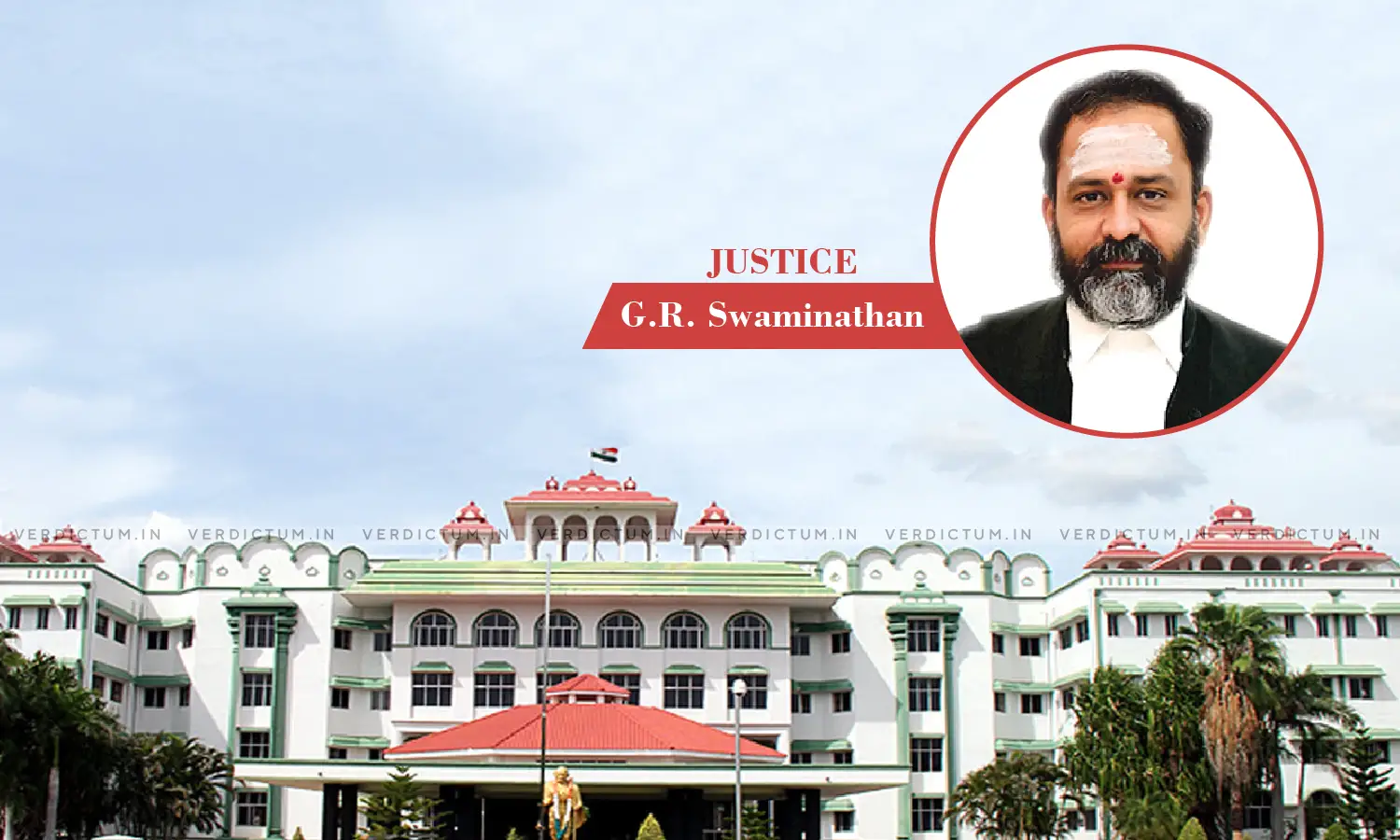Withholding Medical Information Breaches Patients' Rights, Results In Tortious Liability: Madras High Court

The Madras High Court while partly allowing a writ petition has observed that withholding medical information from the patients or attendees would amount to professional misconduct resulting in tortious liability.
Justice G.R. Swaminathan while relying on Maharaja Agrasen Hospital v. Rishabh Sharma, (2020) 6 SCC 501 held that,
“Article 19(1)(a) of the Constitution includes within its sweep the right to receive information. Obviously, a patient is entitled to invoke this right. In any event, following the promulgation of the Right to Information Act, 2005, the government hospitals can no longer withhold information from the patients or their attendants. Withholding would amount to professional misconduct and result in tortious liability as it constitutes an infringement of the patients' rights”
The petitioner, a coolie, married Velmurugan and became pregnant. She was admitted to G.H Mudukulathur on May 17, 2014 due to labor pain. The duty doctor found her condition suitable for normal delivery, and she gave birth to a female child at around 01.50 PM the next day. Due to asphyxia, the mother and child were referred to Government Hospital, Paramakudi, and later to Government Rajaji Hospital, Madurai. Unfortunately, despite treatment, the child passed away on May 20, 2014.
Advocate K.R. Laxman appeared for the Petitioner and Advocates D. Gandhiraj, K. Appadurai and K.C. Ramalingam appeared for the Respondents.
The petitioner alleged medical negligence, claiming her efforts, including representations and seeking information under the Right to Information Act, went unanswered. The petitioner's lawyer asserted that if a cesarean operation had been performed, the child might have been saved, requesting compensation.
In response, the respondents (1 to 4) filed counter-affidavits, with the doctor and nurse named in person. The respondents denied the petitioner's allegations. The duty doctor, Dr. Karlin, appeared in person to assist the court. The petitioner's lawyer reiterated their claims during the proceedings.
The Court highlighted the legal context surrounding the case. The Court stated that medical professionals, hospitals, and their role in society are crucial, with different levels of access based on economic resources. The Court while relying on Montgomery v. Lanarkshire Health Board (2015 AC 1430 discussed the rights of patients, emphasizing that regardless of whether the doctor works in a government or private hospital, the same duty of care is expected and that patients are recognized as having rights, as opposed to passive recipients of medical care. The importance of medical records, the right to receive information, and the obligation to maintain records were outlined, with references to legal provisions and standards vide Federation of Obstetrics & Gynecological Societies of India Vs UOI (2019 6 SCC 283).
The Court examined the petitioner's claims and the evidence presented. The allegation that the child was born dead was rejected based on recorded treatment details. The Court acknowledged the potential of cesarean operation but concluded that the doctors' decision for a normal delivery was reasonable based on the available information.
Regarding the child's death, the Court stated that it cannot solely attribute liability to the doctors based on the mortality statistics and the variety of factors that can lead to asphyxia. The court reminded that a departmental inquiry was conducted, and the complaint was rejected.
The Court acknowledged respondents' claim that some of their records were missing and that police complaint was lodged long back. The Court in this regard remarked that if the information had been stored digitally, it would have been possible to retrieve and access them at any point of time.
“The failure to furnish information by the authorities of G.H, Mudukulathur does constitute an infringement of the petitioner's right.”
The Court further acknowledged the petitioner's claims of ill-treatment by paramedical staff. The Court criticized the unavailability of ventilator support at the Paramakudi hospital, which forced the petitioner to travel, causing additional strain. The Court thus ordered compensation of Rs. 75,000 to be paid by the first respondent within eight weeks.
Accordingly, the Court partly allowed the Petition.
Cause Title: Jothi v. The State & Ors.
Click here to read/download Order


